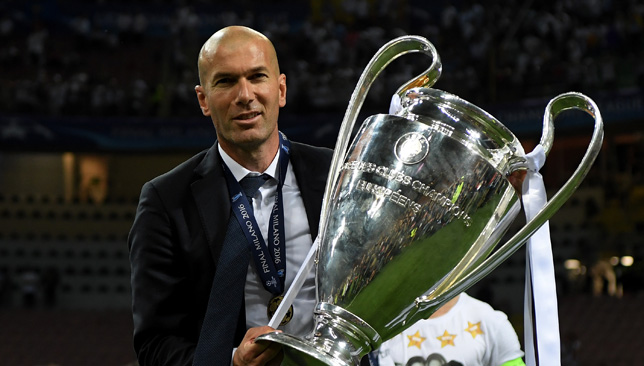
When Zinedine Zidane was appointed Real Madrid manager in January, he wasted no time in outlining exactly how he would set about his job.
“I want to see fast football, playing out from the back and controlling possession,” said the incoming French coach.
“It’s always been important here to see attractive football and I will continue along this path.”
Less than five months later, Zidane found himself in the Champions League final and suggested that his evolution as a coach is actually following a very different path. Not at first, because Real were flying in the early stages and were deservedly ahead after an utterly dominant opening half-hour.
But then, rather than continuing on the front foot and attempting to kill off the game with a second goal, they went on the defensive and took the collective decision to protect what they had.
Before half-time, that might have been nothing to do with Zidane, who had the opportunity during the break to right the wrongs which had been creeping into his team’s play in the latter stages of the opening period.
Instead, however, Real became even more cautious as Atletico proceeded to dominate the second half, defending ever deeper and restricting their attacking ambitions to the counter-attack.
This is not meant as a criticism of Zidane. Indeed, a dose of defensive-minded reality is just what’s needed at a club where the recruitment process is based upon gathering the world’s most sparkling attacking talent without too much thought over how they might fit together. Zidane’s predecessors Carlo Ancelotti and Rafa Benitez, for instance, both unsuccessfully wrestled with the problem of incorporating James Rodriguez and Isco into a team already containing the un-droppable forward line of Gareth Bale, Karim Benzema and Cristiano Ronaldo.
At first, Zidane addressed the issue by experimenting with a hybrid 4-3-3 / 4-4-2 formation which never looked like a long-term solution.
Before long, though, a league defeat to Atletico convinced Zidane to change that approach and instead instigate a new solution to the James/Isco problem: playing neither of them, with the far more defensive abilities of Casemiro becoming his new established starter.
Since then, Zidane’s team has been taking shape and it has been a far cry from the fast-paced, attacking principles he initially espoused.
The 2-1 victory at Barcelona in April, for starters, was a masterclass in sitting deep and soaking up defensive pressure before hitting hard on the break.